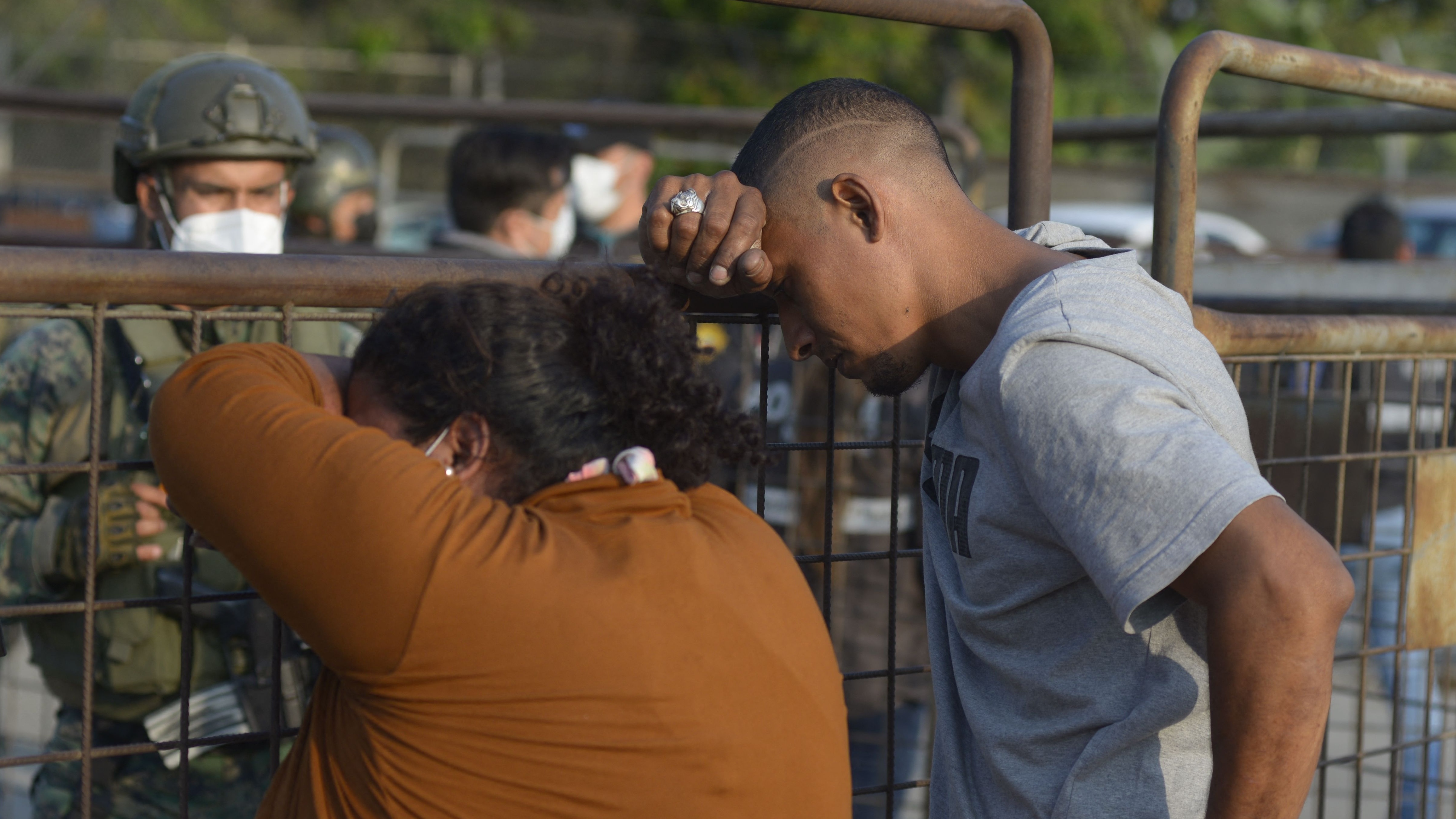Ecuador prison massacre: the gang war for power behind bars
More than 100 inmates killed in most deadly jail riot in the South American nation‘s history ’

A free daily email with the biggest news stories of the day – and the best features from TheWeek.com
You are now subscribed
Your newsletter sign-up was successful
The confirmed death toll from a gang battle in one of Ecuador’s largest prisons has risen to 116, including at least five inmates who were beheaded.
A further 80 prisoners were injured during the clashes last night at the Penitenciaria del Litoral in Guayas province, “in what authorities are calling the worst penitentiary massacre in Ecuador’s history”, reported the Associated Press.
According to officials, the violence was triggered by tensions between the “Los Lobos” and “Los Choneros” prison gangs, both of which are linked to international drug cartels and have been vying for control of the jail for months.
The Week
Escape your echo chamber. Get the facts behind the news, plus analysis from multiple perspectives.

Sign up for The Week's Free Newsletters
From our morning news briefing to a weekly Good News Newsletter, get the best of The Week delivered directly to your inbox.
From our morning news briefing to a weekly Good News Newsletter, get the best of The Week delivered directly to your inbox.
President Guillermo Lasso declared a state of emergency in Ecuador’s prison system in July following similar outbreaks of violence that resulted in the deaths of more than 100 inmates. Declaring another state of emergency yesterday, Lasso “said he would send additional security forces and free up funds” to avoid further violence in prisons nationwide, reported The Guardian.
Meanwhile, “armoured vehicles, soldiers, ambulances and relatives of inmates gathered outside the penitentiary” at the centre of the latest violence, in Ecuador’s largest city Guayaquil, the paper continued. Many of the relatives were “waiting for news of loved ones inside”.
“It is unfortunate that criminal groups are attempting to convert prisons into a battleground for power disputes,” Lasso, who took over the presidency in May, told reporters. “I ask God to bless Ecuador and that we can avoid more loss of human life.”
Images on social media from inside the prison showed “dozens of bodies” amid “scenes that looked like battlefields”, reported AP. Some bodies had also been “found in the prison’s pipelines” and many of the rioters were equipped with “firearms, knives and bombs”, according to officials.
A free daily email with the biggest news stories of the day – and the best features from TheWeek.com
Police commander Fabian Bustos told reporters that a police and military operation had regained control of the prison after five hours.
But despite the crackdown, many commentators fear that further violence will break out in Ecuador’s jails.
Colonel Mario Pazmino, former director of the country’s military intelligence, warned that the latest attacks showed that “transnational organised crime has permeated the structure” of the prison system. Mexico’s Sinaloa and Jalisco New Generation cartels operate through local gangs, he said.
“They want to sow fear,” Pazmino told AP. And “the more radical and violent the way they murder”, the more they achieve their goal of control, he added.
Ecuador has seen a significant escalation of violence and deaths in its jails since the start of the year.
In February, “coordinated attacks” were launched in three large prisons, in the provinces of Guayaquil, Cuenca and Latacunga, “seemingly organised by a number of gangs targeting members of Los Choneros following the murder of their leader last December”, reported InSight Crime. The violence left at least 75 inmates dead across the three penitentiaries, which reportedly account for 70% of the country’s entire prison population.
According to the investigative journalism site, Ecuador is paying the price for “years of a topsy-turvy prison strategy”. A new project was launched to overhaul the prison system in June 2019, to improve “resources and infrastructure” within prisons and “redesign penitentiaries to reduce the risks of violence”.
But the budget for the project was cut last year by a total of 70%.
-
 Why are election experts taking Trump’s midterm threats seriously?
Why are election experts taking Trump’s midterm threats seriously?IN THE SPOTLIGHT As the president muses about polling place deployments and a centralized electoral system aimed at one-party control, lawmakers are taking this administration at its word
-
 ‘Restaurateurs have become millionaires’
‘Restaurateurs have become millionaires’Instant Opinion Opinion, comment and editorials of the day
-
 Earth is rapidly approaching a ‘hothouse’ trajectory of warming
Earth is rapidly approaching a ‘hothouse’ trajectory of warmingThe explainer It may become impossible to fix
-
 Epstein files topple law CEO, roil UK government
Epstein files topple law CEO, roil UK governmentSpeed Read Peter Mandelson, Britain’s former ambassador to the US, is caught up in the scandal
-
 Iran and US prepare to meet after skirmishes
Iran and US prepare to meet after skirmishesSpeed Read The incident comes amid heightened tensions in the Middle East
-
 Israel retrieves final hostage’s body from Gaza
Israel retrieves final hostage’s body from GazaSpeed Read The 24-year-old police officer was killed during the initial Hamas attack
-
 China’s Xi targets top general in growing purge
China’s Xi targets top general in growing purgeSpeed Read Zhang Youxia is being investigated over ‘grave violations’ of the law
-
 Panama and Canada are negotiating over a crucial copper mine
Panama and Canada are negotiating over a crucial copper mineIn the Spotlight Panama is set to make a final decision on the mine this summer
-
 Why Greenland’s natural resources are nearly impossible to mine
Why Greenland’s natural resources are nearly impossible to mineThe Explainer The country’s natural landscape makes the task extremely difficult
-
 Iran cuts internet as protests escalate
Iran cuts internet as protests escalateSpeed Reada Government buildings across the country have been set on fire
-
 US nabs ‘shadow’ tanker claimed by Russia
US nabs ‘shadow’ tanker claimed by RussiaSpeed Read The ship was one of two vessels seized by the US military